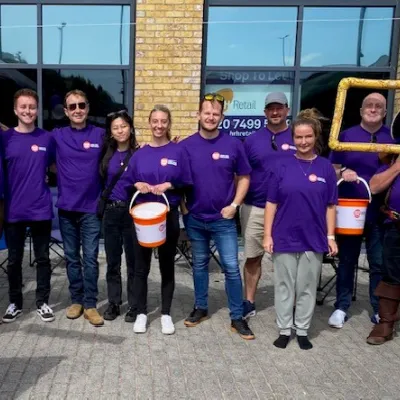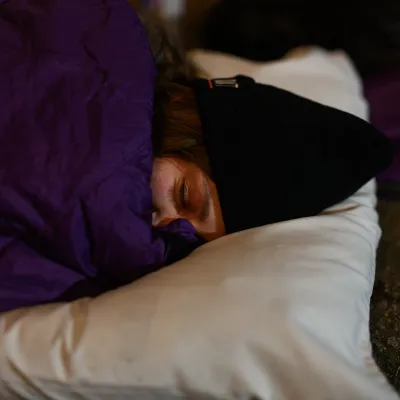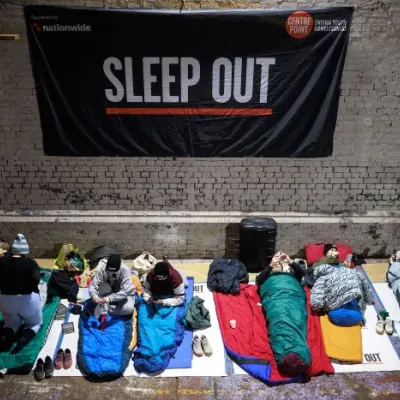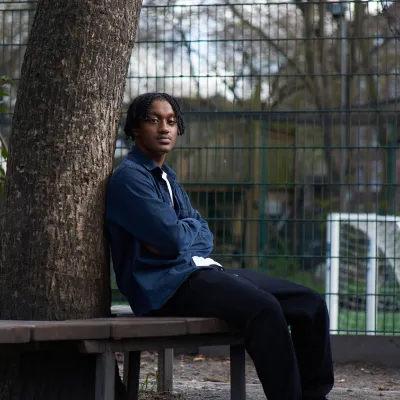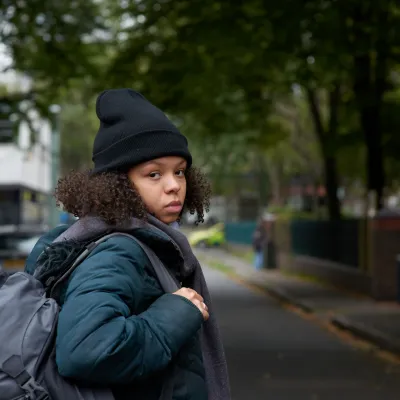The period over Christmas and the New Year is supposed to be a time of reflection, relaxation and celebration - a time to see family and friends and recharge at the end of the year.
However, for young people facing homelessness across the UK, the holiday period provides little respite. Centrepoint’s youth homelessness databank shows that between October and December last year, over 22,000 under-25s had to go to their council for support because they were homeless or at risk of losing a home.
But this number, while shocking, doesn’t tell us what it's actually means to be young and homeless at Christmas.
Research findings
Earlier this year, Centrepoint conducted a survey of young people living in homelessness accommodation across England and Wales. We reached out to 227 young people in hostels, foyers and semi-supported housing to try and understand the experiences, and the impacts, of youth homelessness today.
Our research sheds light on just some of the situations that homeless young people are forced into. It shows why it is so critical that organisations like Centrepoint are there to provide the support that we do, and why we campaign so that no young person has to face homelessness and housing insecurity.
No place to call home
Each of the young people who took the survey have their own story, but for many, their homelessness was the result of being unable to remain in their family home. This could be because of overcrowding, disputes with family or abuse and neglect. For 37 per cent of respondents, this meant having to spend time in an abusive household before becoming homeless. Almost half of respondents identifying as LGBT+ reported staying in an abusive household because they had nowhere else to go.
For young people who could not stay at home, staying temporarily with different family members and friends provided warmth and shelter. Three-quarters of those responding to this survey had sofa surfed, but many young people reported that relying on others to provide a place to stay strained relationships with family and friends – and once their goodwill ran out, options for safe places became fewer and fewer. Almost one in four young people felt pressured to stay with a stranger while homeless, exposing them to risk, exploitation and abuse.
No safe place
The young people in this study were clear about the impacts of homelessness on their health and wellbeing – and highlighted the serious risks that they were exposed to while not having anywhere to live.
Almost a third suffered physical assault while homeless, while one in five young women had been the victim of sexual assault. Many young people also reported being pressured to commit a crime, with one in six saying that they had taken part in criminal activity – such as selling or preparing drugs – simply for a place to stay.
No place at all
As well as sofa surfing and staying in insecure and temporary locations, many of the young people in this study had experienced sleeping rough. A third of young people reported that they had had to sleep in a park. A quarter in a car. Young people told us about having to spend a night in a range of unsafe and unsheltered locations, from night buses to public toilets.
The impacts of homelessness and sleeping rough go beyond physical insecurity and discomfort. More than seven in ten respondents said that the experienced damaged their mental health, and that there were times when nobody cared about them. More than half reported there being times they could not tell anyone they were homeless.
A place at last
Every young person going through homelessness will have their own experiences and story to tell. This research has highlights just some of what homeless young people are facing right now – from impacts on their mental and physical health, to difficulties accessing education and employment and having to make impossible choices simply for a place to stay.
That’s why Centrepoint has launched our Christmas appeal, to ensure that we are doing all we can to best support those young people experiencing homelessness now, and so we can campaign to end youth homelessness across the country.

